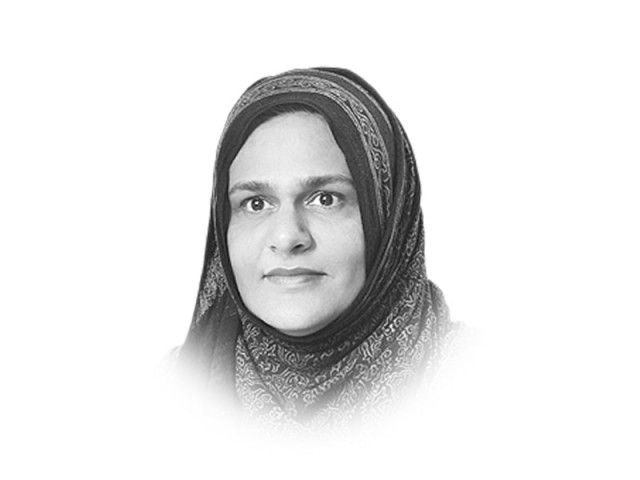Domestic violence — a public health issue
While health implications of domestic abuse are known, what is not so well known is its relation with mental illness.

The writer is a member of the Royal College of Psychiatrists and a consultant psychiatrist. She tweets at tweets @AsmaHumayun
While the presentation of domestic violence may be culture-specific, it is not a “Western” malady. Politicising the mandate of domestic battery or glamourising its presentation in the media essentially helps raise awareness.
The proposed domestic violence bill, currently under debate in Pakistan, offers a sweepingly broad definition of domestic violence as an issue encompassing a wide variety of physical, emotional, sexual and economic scarring. This definition, rightly so, does not specify any gender and instead, crucially states that the above acts “committed against any person with whom the respondent is in a domestic relationship”, constitutes domestic violence. But in contrast, the preamble of the proposed bill strongly eludes a gender-based provision “for the protection of women, children and the family”. This is clearly restrictive and ignores vulnerable men or the elderly who might not be considered protected.
The health implications of domestic abuse, in terms of physical and mental trauma, malnutrition and anaemia, sexually transmitted diseases, adverse complications of pregnancy, etc., are all well known and documented. What is, perhaps, not so well known is that the relationship between domestic violence and mental illness is not a simple causal one. It is a general misconception that mentally unwell people tend to be dangerous and abusive. This might be true for some cases, but the reality is that mentally ill people are far more likely to end up victims of domestic violence. This is especially true for women with severe mental illnesses, who are at an exceptionally high risk.
Children who are exposed to violence at a young age are also as likely to perpetrate violence as adults. The most likely explanation is that men from violent homes grow up to view violence as normal behaviour in situations of conflict and continue this pattern as married adults. The socio-cultural aspects of “broader acceptance of physical violence” is also a significant factor. This was confirmed by a study in Karachi where one-third of all participants reported being physically beaten by a parent when they were 18 years or older. Culture, ethnicity and religion also influence societal views about the role of women and the level of violence against them. In many parts of South Asia, Western Asia and Africa, men believe that they have a right to discipline their wives (UNPF, 2000). In addition, socio-economic deprivation and lack of education also contribute significantly towards triggering the menace of domestic violence.
The main challenge for policymakers is that this form of abuse still remains largely hidden. The dynamics of reporting a violent partner or walking out on a relationship, particularly in Asian cultures, are not as simple as they might be in the West. Sadly, many poorly supported women prefer to forgo their individual rights to safeguard their children or face the stigma of being abandoned.
We do need legislation to deter domestic violence, but a simple judicial model might be inadequate to address this complex issue. There is a parallel here with another serious public health issue: suicide and attempted suicide, both of which are still viewed by Pakistani law as criminal acts. As a result, there is tremendous reluctance amongst victims to report or seek medical help. Similarly, domestic violence has to be seen as a complex challenge and not be treated merely as a crime. We need collaborative efforts to develop a therapeutic judicial model where opportunities are created for early reporting, comprehensive multi-disciplinary assessment and provision of medical help, where needed.
The domestic violence bill under debate is a proposal to “save face” and protect women, but what this country truly needs is a reform-based approach in legislation, which lends protection to all vulnerable segments of the population irrespective of gender, age, caste or creed.
Published in The Express Tribune, April 12th, 2013.















COMMENTS
Comments are moderated and generally will be posted if they are on-topic and not abusive.
For more information, please see our Comments FAQ